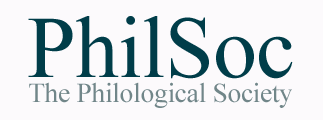This meeting will take place at University College London, Wilkins Building (Main Building), Gustave Tuck Lecture Theatre.
To locate the lecture theatre, enter the Wilkins Building (Main Building) and go up the stairs (or take the lift) two floors. This takes you to the entrance of the lecture theatre.
This map gives and overview as well as directions from other locations.
Tea for members and their guests is served at 3:45 in the area outside the lecture theatre. The talk will start at 4:15.
Despite intonation’s relevance for understanding speech, language, and communication, its study is often neglected or reduced to atheoretical phonetic measurements. In the first part of the talk, I will briefly cover the nature and functions of intonation and discuss the reasons why it is often seen as challenging and difficult to study, leading to the aforementioned reductionist approaches. In the second part, I will showcase the ways in which in my research, I try to address these challenges by presenting two complementary studies on the phonological status of high and rising accents (H* and L+H* respectively, in AM terms) in the intonation system of Southern British English. The presence of distinct high and rising accents has been disputed in treatises of English intonation for at least a century, while recent empirical studies provide equally inconclusive evidence. Here, I will present findings on the phonetic nature and information-related function of these accents in spontaneous speech, and present experimental results showing that individual cognitive styles affect how high and rising accents are processed by native speakers. Finally, I will discuss how the combined evidence from production and perception can shed light on this long disputed accentual contrast.

